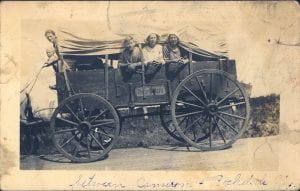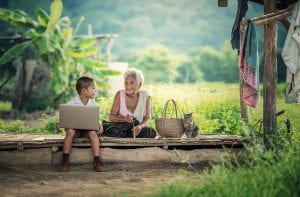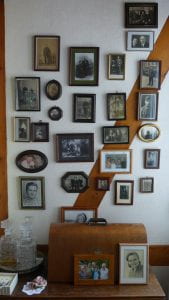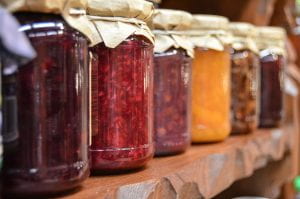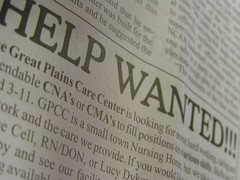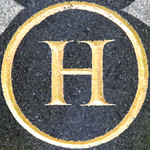Again ANZAncestryTime twitterchat had our four questions but I am going to separate them with our answers.
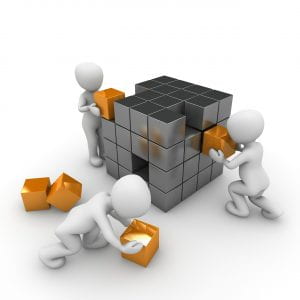
1. Do you cite your genealogy sources and why is it important to do so?
Karen: Much of the information I have found is in historical newspapers and documents such as electoral rolls, birth, marriage and death certificate transcriptions, and shipping records. I had little information to go on otherwise.
Helen: Of course! To provide evidence; so I can easily access/find the source again; to help others check my work and help with their research.
Michelle: Always. Although sometimes they are a rough entry in notes until I do them properly in my database.
Margaret: I try to on all my @WikiTreers profiles. Only exception is my mother’s research. If she has it and I can’t find it I use it
Helen: That’s a great recommendation. I have a family member’s research I can implicitly trust too. I love sharing my discoveries with her
Pauleen: The best kind of research geneabuddy…a serious, meticulous researcher
Helen: My wonderful older geneabuddy had access to the older generation I didn’t too, and she still has paper questionnaires from the 70s/80s she asked them to fill in about her family. GOLD!
Fran: How wonderful. Hopefully someone will digitise the images and also type up so they are not lost.
Brooke: and how do you write the citation for a questionnaire?
Helen: I’d include name of person answering, name of researcher, describe it as a genealogy questionnaire, private hands (in a publicly available document/blog)
Carmel: I record all sources in my genealogy database as I add the records. Add lots to Evernote too. All sources added to blog posts, Harvard style
Fran: I use my database also. I used to add more notes in Evernote but recently moved extras back to my database as notes or attachments so it can be found all in one place.
Maggie: Have learnt the hard way, and now am religious about keeping track of my sources – so I can go back and see what I found, how I found it, where I found it, and evaluate it against other sources.
Claire: I think we all have notes on pieces of papers that we have no idea where we found something!
Maggie: I think that’s when I switched to notebooks… at least the notes were all in one place. Still unsourced, but hey, better than loose scraps (and hopefully some context in there?).
Claire: I have my own referencing system for my offline tree. Online I sometimes add sources but generally don’t spend to much time on it, I don’t want to give all my work to commercials & I can produce the goods for genuine connections when asked.
Hilary: I have spent too much time redoing things because I didn’t do a good job of citation in the past so now it is the first priority. It is important to know where you found the information if some time later you find something that questions earlier research I found this problem just yesterday.
Pauleen: And to add insult to injury, the archives changes their cataloguing system and you have to “translate” the old citation into their new format.
Helen: Which is an ABSOLUTE disgrace! I’m an archivist and archivists should understand this! Don’t get me started!
Pauleen: And occasionally you find a person who can’t help make a transition you’re trying to track.
Helen: I am not going to ‘like’ this Pauleen! Where’s the ‘fuming’ icon?!
Sue: Did this in Tasmania but at least only added a 1 in the catalogue eg RGD37/46 became RGD37/1/46 – meaning first lot digitized I think
Brooke: I tend to copy the MLA citation for Trove articles because it is closest to UTas history citation style. It’s what you’re used to.
Jennifer: I’ve found many think that if it’s on the internet it’s free. I found a blog post I’d written about an ancestor on someone’s Ancestry account as if they wrote it. I asked them to take it down or add me as the source. They took it down after a while
Sue: having blogged with students since 2007, I quickly learnt about copyright with images and getting permission or else you get sued.
Pauleen: Even a copyright notice across the image doesn’t stop people using them. People in general are intransigent about copyright and don’t want to hear when you tell them they can’t.
Sharn: I find if I record my sources as I research it is less painstaking than doing it all at once.
Sue: when adding to profiles on trees, I include websources especially from Trove or the Tasmanian Names Index
Pauleen: When we get pressed for time when visiting a repository it’s all too easy to forget to properly document. Online catalogues can be helpful to overcome our omissions. I try to photograph the packet and my order slip before I start on the document. Thankful for the fact we’re now allowed to photograph. Once upon a time we had to get anything we wanted photocopied and sign a copyright disclaimer.
Maggie: I always photograph the order slips now, has saved my life many a time. And yes, always seem to be working at speed in archives
Sharn: As I research now I add my sources to a word document that I save to my computer and each topic has its own folder of sources I can return to.
Jennifer: This is what I’d like to do. I l wish I was as organised as you Sharn. I should make it a priority
Jennifer: I learnt in the early days of my research how important it was to cite sources when I couldn’t find something previously found in an archive. One day I’m going to go back to all those old early blog posts and find the source so that I can cite them. That’s the plan anyway, if I live long enough.
Pauleen: @legalgen has shown us the gold standard of citations in blogging, so we’ve started to learn from her example
Sharn: It is important to me to cite my sources as they establish evidence for my research. I also learn from other people’s citations
Pauleen: I agree. Following other’s citations in books etc can be useful wayfinders to future research opportunities.
Helen: Absolutely. I’m an avid footnote fan. I even own a book called The Footnote, by Anthony Grafton!
Pauleen: To footnote or to endnote, that is the question. I’ll have to look for that book.
Fran: Items I add to my main family tree I cite the sources. I need to as I cannot remember where I fond things. I do not always source blog posts as mine are usually quick and sweet little posts and not advanced pieces of research. If anyone asked I could refer to my main tree and see where I found the information.
Helen: Currently tutoring at tertiary level & correct citation is a huge part of their mark, effectively, because if the students don’t master citation, they fail their assignments!
Jennifer: It’s important to cite your sources so you or somebody else can find it again. It also gives credibility to the information and gives credit to other researchers or writers. Without citing sources you could be accused of plagiarism
Sue: when writing post on blog I link URL to images of words but don’t necessarily cite like in Chicago etc unless it is formal essay
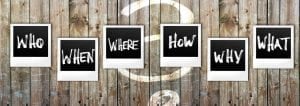
2. Where do you use citations? ie blogs, reports, trees?
Karen: I included a long reference list for a recent article for the Lane Cove Historical Society journal. I send links to articles to family members, e.g. Trove articles. Citations are also in my family tree. Haven’t written blogs yet. Maybe I should.
Michelle: in my database and any report I write. I haven’t got into blogging yet but one day… I’ve begun putting biographies on WikiTree and the citations sometimes lag behind the text until I can copy/paste but I find it easier to just write without stopping.
Pauleen: I can understand writing without stopping but even if you just put the footnote # in there and come back after finished writing it helps.
Sue: Always good to check the site you got info from for how they want something cited or footnoted
Helen: Good point Sue. Some of them are very clear about that. Some of them could do better!
Sharn: I use citations in my house histories. The footnotes are as long as the history sometimes
Pauleen: I used them extensively in my major ADLH assignment for Oxford, as it was about Irish migration and conditions which wasn’t their area of expertise.
Fran: Mostly 100% in my main tree has some source. I try not to add unless I have time to do a source. I do them for other work like any essays, reports, etc when studying as this is expected and part of the process.
Maggie: Reports, trees, blog posts (though sometimes those ones might be less formal). However, I do have a bit (okay, a lot) more work to do on ones in the earlier nooks and crannies of my main research tree in Reunion.
Pauleen: I don’t use citations in trees online because I don’t add my primary research to those. I also don’t add it to my genealogy database as I prefer a narrative format.
Helen: We are very similar but that said, for one particular branch of the family I have an online database where I add sources and annotate. Here’s an example: ancestry.helenmorgan.net/people/13-0020
Pauleen: I like how you’ve got the person’s life history summarised in a clear way.
Helen: Thanks. Lots more to do on this. None of them are ‘finished’ – I intend to include more of my narrative writing too.
Hilary: I have been waiting for new desktop software update so now trying to use to rebuild my database using good citations as has better sourcing capabilities
Jennifer: I cite my sources on everything I write. I often write & publish blog posts on my phone when away from home and when I don’t have the source at hand. I always go back and add it later
Sharn: If I am out I add a source in NOTES on my phone so I can find it again later
Hilary: I am very active on @WikiTreers and busy cleaning up profiles so much of my current citation work is online
Sue: If I want to use something from Tasmanian archives always send them a request and include URL of blog post it will be used in. Haven’t been refused yet.
Pauleen: That’s interesting because I’ve been told before that the archive doesn’t own copyright and I had to go to the relevant dept. A right nightmare! That was for my book.
Sharn: I use footnotes on my blog posts and I now add source on my online trees (I’ll add ie a FindmyPast source on an Ancestry tree) so that I know where I found things
Margaret: I use them in the biographies I write for my profiles on @WikiTreers. I add them to the people in my Legacy trees
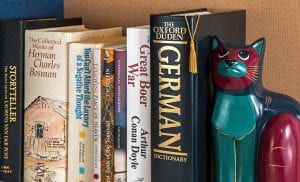
3. What referencing system or guides do you use or would like to use for citation?
Karen: EndNote. I generally use APA7th when citing.
Sophie: Great question! Agree with others that there’s a need to be a little flexible with choice of ref style according to where you’re publishing/writing…but Shown Mills’ book is certainly handy
Sophie: One of my go-to items is Zotero @zotero which has an awesome browser add-on that allows you to perform a one-click grab of referencing metadata from pages and articles you visit online. An essential tool!
Hilary: I use Evidence Explained if I can but I also have Referencing for Genealogists: Sources and Citation which is better for UK sourcing
Michelle: I tried EE but found it inconsistent. And the comma inside the title quotes is grammatical nonsense. Now I use my own system which is pretty much [where I found it] citing [where it comes from]. For books etc I use Harvard which I’ve used for years.
A3. The citation style I use really depends on what format I’m in. I try and stick as close as I can to Elizabeth Shown Mills (Evidence Explained), but somewhat simplified. I bought this book a while back.. must get round to reading it! #ANZAncestryTime pic.twitter.com/CSD7QUVkzX
— Maggie Gaffney (@iwikiwichick) March 23, 2021
Fran: Would love to say some official system. Do have my Evidence Explained beside me. I find The Lazy Genealogist system most successful. I use free form in Reunion. I go for more than less. Copy archives citations, add notes, transcriptions, images, links, etc.
Sue: depends who i am writing for. essay at uni or article for magazine, i would do formal citing with footnotes and bibliography. but blog post often links if info found online
Jennifer: I’ll use a link in a blog post too Sue if I have one. Will put the correct source in my FH software
Hilary: If websites provide their own citations I will use them but sometimes I edit them if incomplete
Helen: I no longer follow a particular system, just include everything needed for a clear, honest citation that allows it to be found again
Brooke: I think that’s completely valid. Being able to re-find the source is the point of the exercise.
Carmel: Indeed, as long as one has Who, What, When , Where , Why and How – that’s the criteria I use for citations then make sure some consistency of order is added
Jennifer: I always refer to Evidence Explained (EE) when unsure. If I’m really unsure I just write it to make sense so somebody knows where to look for it after they read it.
Sharn: I prefer Harvard style citations but in terms of organising citations they are in files under topics researched on my computer. I need some software!
Pauleen: Unless I’m required to use a particular citation model, I tend to use the Australian Style Manual. The main thing is to get the details documented so the record can be found again

4. How do you keep track of the sources you find or want to follow up? ie correspondence with relatives, downloads, photos
Brooke: How about naming files for digital sources? At a workshop, a historical fiction writer said that she simply names files according to what they mean to her, thinking of words she would use for searching, & let’s the computer’s search engine do the rest.
Jennifer: I like that idea. It keeps it simple. There’s really no need to overcomplicate as long as it can be followed. Different if it’s a source in a book or publication
ANZ: I am pedantic about my filenaming, use a standard convention so I can build my complete citation from it.
Brooke: Eureka moment! That’s a very smart way to go about it. Thank you.
Maggie: And don’t modify the original file, always edit a copy. That way the date of the file is the date you accessed/downloaded it.
Pauleen: Hadn’t thought to do that, good tip, thanks Maggie.
Pauleen: I remember once, at work, being told that file where you first think of a location as it’s likely that’s where you’ll look next time. Makes sense I think
Fran: For work I use names I would think of searching for next time I want it. Similar for family history though I start with a unique number so that once I find one piece I just search the number and find all related pieces.
Fran: A number for an item plus words for things like source, what it is, names and dates – sometimes shorthand. Eg a birth certificate, a will, a page from a census though this might have two pages if the family covers two pages. 0600-GRO-Death-Cert-Frances-Ann-Shepherd-DOD-1946.png
Helen: I would do this for some – very frustrating that with VIC BDM certs they provide them unmeaningfully as Cert_190923-2021 rather than before image_DeathCertificate_CAHILL_Michael_1863 – so I rename those. Otherwise I rely on filing by subject/context
Pauleen: I keep a running file of records I want to follow up in the archives or library and another for my infinite wishful “to do” list. I found my archives list very useful when I’d suddenly find myself in Brisbane from Darwin.
Michelle: I use a genealogy-specific gmail address and file all emails into folders by name.
Michelle: I have 4 colour-coded manila folders by grandparent surname where stuff for scanning goes till I deal with it. Same on computer for digital stuff. When I’m working on that line I go through it and process them
Karen: I have photos and documents stored in folders on my computer/Cloud and hard drives. Many have been sent via email, so I can often find them quickly through email searches.
Pauleen: Does anyone else ever feel like they’re drowning in a tsunami of data, sources, emails, photos etc etc? I’m finding it very overwhelming with my decades of “stuff”.
Fran: I can understand this better after seeing your book today. What a pile of work that would have been!! I suspect you need to prioritise and work on that first. Some might have to be left undone.
Pauleen: I was exceptionally organised when I was writing the book but now I’m retired I’ve moved into CBB (can’t be bothered) mode about far too much.
Maggie: ‘m not great at this bit – I need a correspondence log! Downloaded files are no problem, as I use a filenaming convention, but I need to sort out a proper system for photos.
Hilary: I have so much organising to do but not sure when it will be done as lockdown did not inspire me to do it. When I am filing downloaded images I am trying to stick with the original name just adding to the appropriately named folder
Sharn: It bothers me that I haven’t organised my email correspondence. I have a wealth of information in them. I record every source I find that is useful in word documents under the topic. I just add to those when I find more. I index them to keep track of what I have. I hate losing sources
Jennifer: I really dislike research logs. I just put where I researched and the results on the ancestor file in FH software
Fran: Big fail happening with keeping track on want to follow up. When I am tidying up pile of what looks like scrap I will find a page printed with a little note: check at XYZ place.
Pauleen: I’ve been retrieving old emails (some) and sending them to Evernote too. I’ve also copied the email chain for ones I’ve had lots of correspondence with and put them into a file.
Carmel: in email keep all genie correspondence in one folder, in gmail, tag with surname labels, also send to Evernote email with surname tag
Jennifer: I use the notes section in my family tree software to record sources that need follow up. I try to record all sources with a person on the tree. That’s my intention but I’m not always that organised. I’m very proud to see I scanned every one of my documents and photos in lockdown last year. Took all year. Was so happy when it was done
Want to practice your writing and citation skills?
Family history writers, here’s a chance to hone your writing skills and win a prize with the Annual Croker Prize for Biography (thanks SAG). https://t.co/Kw045GgMoX
— Dr Naomi Parry (@drnaomi) March 27, 2021
Great quotes:
Jennifer: Thanks everyone for the really informative discussion on sources. I’m relieved to hear that I’m not the only one who isn’t perfect all the time. I did think it was only me
Penny: What is this you say – The Lazy Genealogist system? Is there such a thing?
Readers: Do you include sources and citations when writing blog posts, reports or on your trees?
